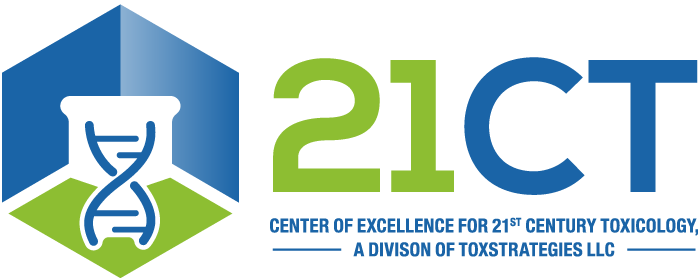Proctor DM, Thompson CM, Suh M, Haws LC, Harris MA. 2012. Mode of action for intestinal carcinogenesis of ingested hexavalent chromium in mice. Presented at Society of Toxicology 51st Annual Meeting, San Francisco, CA, March 2012.
Abstract
Chronic ingestion of hexavalent chromium (Cr(VI)) has been shown to cause small intestinal tumors in mice at concentrations ≥ 60 mg/L of sodium dichromate dihydrate (SDD). To assess the mode of action (MOA) for carcinogenesis in rodents and relevance to humans, we conducted 90-day drinking water studies in both rats and mice, with collection of histopathological, biochemical, toxicogenomic, and pharmacokinetic data, as well as measures of DNA modification at concentrations of 0.3-520 mg/L SDD. These studies were designed to assess whether intestinal tumors are initiated through a mutagenic or non-mutagenic MOA. After 7 days of exposure, change in redox status (decreased GSH/GSSG) occurred ≥ 60 mg/L in the mouse duodenum; cytotoxicity in the villi and apoptosis in the crypt were observed at ≥ 170 mg/L; and crypt hyperplasia was observed at 520 mg/L. At day 91, these effects progressed, each occurring at lower doses, with changes in redox status starting at 14 mg/L. Cytogenetic examinations of intestinal crypts revealed apoptosis at the highest two concentrations, but no increase in micronuclei. Toxicogenomic findings demonstrated oxidative stress and regenerative responses consistent with the biochemical and histopathology findings, including activation of Nrf2 target genes. DNA repair gene activation occurred primarily at day 8 at ≥ 170 mg/L, and was more consistent with a non-mutagenic profile and cellular regeneration. Mutations of codon 12 of k-ras were not elevated at any dose following 90 days of exposure. Together, these findings indicate a point-of-contact response for Cr(VI) with the epithelium of the small intestine, and a MOA consistent with chronic tissue damage, cytotoxicity in the villi, and compensatory crypt epithelial cell proliferation. Overall, several lines of evidence support a non-mutagenic MOA for intestinal carcinogenesis in mice exposed to SDD in drinking water.
